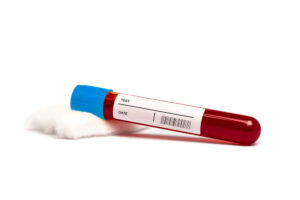 First, let me say the title of this journal article shocked me a bit. It talks about blood transfusions in body contouring surgery, which is something I have only seen a couple of times in my career. (And I have done thousands of surgeries.) The title makes it sound more frequent, “Patient Blood Management Strategies to Avoid Transfusions in Body Contouring Operations: Controlled Clinical Trial.” (Feb 2021, PRS Journal)
First, let me say the title of this journal article shocked me a bit. It talks about blood transfusions in body contouring surgery, which is something I have only seen a couple of times in my career. (And I have done thousands of surgeries.) The title makes it sound more frequent, “Patient Blood Management Strategies to Avoid Transfusions in Body Contouring Operations: Controlled Clinical Trial.” (Feb 2021, PRS Journal)
But I read it because I believe in blood. Not to sound too vampire-ish (not sure that is a word), but blood is good. Blood helps you heal. Blood helps you fight infection. Blood helps you form better scars. Blood helps you feel energetic.
For a while now I have been focused on patients’ nutrition, starting one month ahead of surgery with protein loading. I particularly like red meat as a source of protein. I have patients check their hematocrit (blood level), with the goal to not only be in the normal range, but to be in the higher end of normal. You can take a MVI, iron, or Vitamin B if needed. I have you get off anything that “thins the blood” for 2 weeks ahead of surgery. Things you don’t think of- fish oil, vitamin E, flax seed, collagen- and things you do think of- aspirin, advil, motrin- all make you bleed more. During surgery I am scrupulous about stopping bleeding, and have added things like TXA to help. I use quilting sutures and garments to try to help. So I have drank the Kool Aid on this one. Blood is good.
There is no way to do a big surgery without blood loss. You need to minimize it.
So what were their strategies?
PRESURGERY:
- If their pre surgery Hemoglobin was over 13, they did nothing. If it was lower,
- Hg 12-13, they removed 500cc of blood and added 500cc of IV fluid to the patient. They then transfused this blood at the end of the surgery 2 hours later.
- They also gave IV iron over a period of 2 hours
- They gave erythropoietin over 1 hour
- If the Hg wasn’t over 12, they repeated the process.
INTRAOPERATIVE
- Strict avoidance of hypothermia (you get cold). To avoid this, they heated patients before surgery, during surgery, and they warmed the IV fluids. (why warm matters HERE)
- TXA was used. (blog HERE)
- Liposuction was done in 1:1 ratio (which I do)
POSTOPERATIVE
- Hg levels were assessed 24 and 72 hours after surgery. Mandatory transfusions were done if Hg lower than 7 and if anyone symptomatic between 7-9.
- Both groups were hospitalized for the first 24 hours.
- They looked at patient factors (BMI, smoking, age, etc) and how much fluid they got in surgery and after.
Findings?
The patients in the blood management strategy arm lost an average of 1.2g/dl less Hg at 72 hours, which was statistically significant. They conclude these strategies reduce bleeding and decrease the need to postop transfuse. They did 4 transfusions in the blood strategy group and 27 in the control group.
My thoughts?
Hmm. I think preoperatively removing blood, giving IV iron, and erythropoeitin is … not sure what I think. I don’t know the costs and risks with that. I wholeheartedly like people to beef up (pun intended) their blood levels prior to a major surgery like this. I think preoperative and postoperative nutrition is super important. Intraoperatively what they do is my standard. Postoperatively when they transfused seems standard too, though I just don’t know how many people are there. In their study of 400 patients, the standard postoperative Hg was 11.2 vs 11.6 at 24 hours, at 72 hours it then changed to 9.5 vs 10.7, which was statistically significant. (Blood level goes down with time as you continue to ooze a little, and some of the fluid from liposuction and IV fluids dilutes your blood level until you reestablish your equilibrium.) Their transfusion rate was 27 patients out of 200 in the control group. That seems high to me. Are they doing bigger surgeries? Are we just not cognizant of the blood levels post surgery in patients because we aren’t routinely checking?
Regardless, I agree with a lot of what they advocate. I have patients with lower hematocrits who I make stage big surgeries to improve their healing. Frequently in major weight loss patients there are absorption issues, so they can be anemic even when on vitamins and iron. So instead of doing a mommy makeover with breasts and belly at the same time, we do the breast surgery–> wait 3- 6 months, check the hematocrit levels and when normal—-> do second surgery.
There were some pearls of the study:
- Limiting prone time is better.
- Amount of liposuction volume less than 5 liters (which is our limit at our center)
- Keep the patient’s temperature above 34.5 C.
I always learn something when reading these studies.
